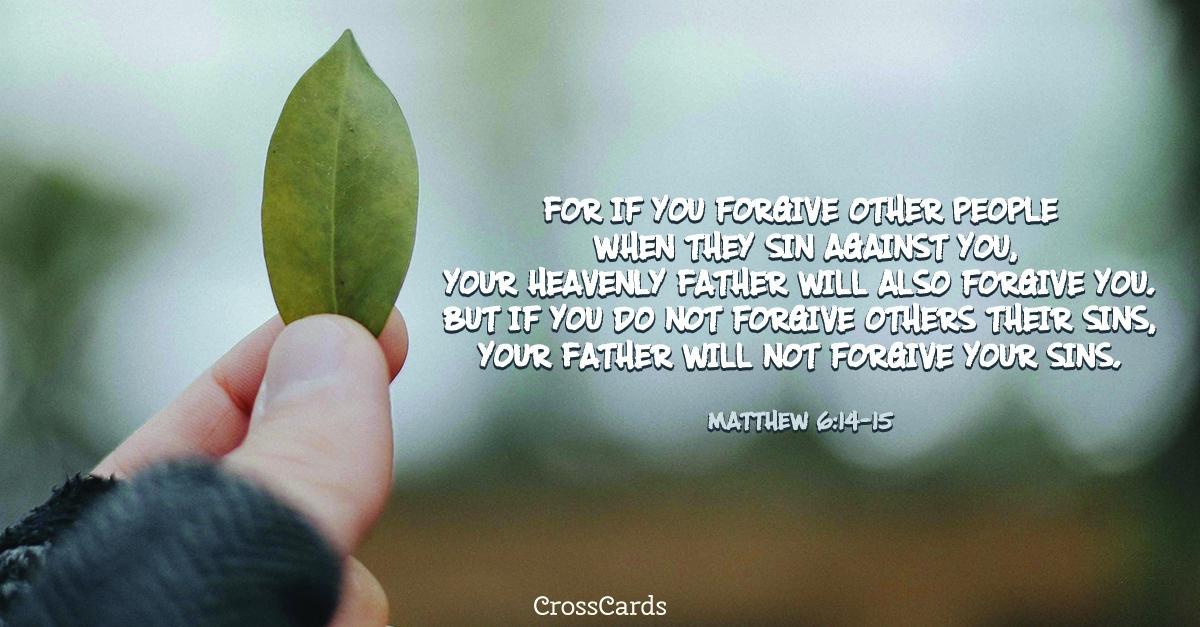
Let’s take a closer look at the beautiful meaning behind “as far as the east is from the west.”
“For as high as the heavens are above the earth,
so great is his faithful love
toward those who fear him.
As far as the east is from the west,
so far has he removed
our transgressions from us.
As a father has compassion on his children,
so the Lord has compassion on those who fear him.
For he knows what we are made of,
remembering that we are dust.”
(Psalm 103:11-14)
Verse 13 from Psalm 103 begs the question, exactly how far is the east from the west? Of course, the answer is there is no measurable distance.
Embedded in those words is the idea of God’s forgiveness for humanity for all of our wrongdoing. There is seemingly nothing God won’t forgive us for, and moreover, he doesn’t hold our past faults over our heads.
Today, forgiveness seems hard to come by in a country where affiliations with certain political parties could potentially lose you friends and earn you enemies. Those who become enemies will always be enemies and any attempt to reconcile may as well not occur.
That is the world’s definition however. God has a higher calling for his followers, and that calling involves forgiving others as he forgives us.
Let’s take a closer look at the beautiful meaning behind “as far as the east is from the west.”

Psalm 103: A Study of Forgiveness
David, author of the Psalms, wrote Psalm 103 to detail the forgiving nature of God. In his own words, he praises the Lord for his ability to forgive us of our sins. Not only does he forgive, but he also “redeems” us (Psalm 103:4).
The words “love” and “compassion” recur throughout the text. David brings emphasis to the fact that God loves us. His forgiveness for our iniquities springs out of this undying love for his people. Instead of holding on to our wrongdoings, he wants to let go.
David does not shy away from the idea of God’s anger. Just as we are made in the likeness of God, he has emotions too, including anger (Genesis 1:26).
David describes God’s anger as something that won’t last forever. Scripture tells us that the path to sin has one ultimate destination—death (Romans 6:23). Yet God doesn’t give us what we deserve. For the fact that God prefers love over punishment, David cannot help but offer praise.
David’s words are a useful reminder today that God is affected by our actions. He becomes mad when we do wrong. God is not a distant observer in our lives, he is a loving and caring father who is near.
He loves us enough to forgive us and he must trust us enough to do better.
What Is Forgiveness According to Psalm 103?
Forgiveness defined in one act would be the sacrifice that Jesus himself made for humanity’s sake.
“He himself bore our sins in his body on the tree; so that, having died to sins, we might live for righteousness. By his wounds you have been healed.” (1 Peter 2:24)
God sent his only Son to die for the sins of mankind. Not because God had to, but because he wanted to. He loves us.
Forgiveness involves letting go of hostility toward a person who has offended us, whether or not they deserve or asked for forgiveness. When we forgive, we allow ourselves to be open to performing kind gestures to people who were not so kind to us.
This principle sounds nice, but is very hard in practice.
Imagine a woman who has to forgive her parents’ killer. Or a child who has to forgive her parents for neglect. The act of forgiveness takes a tremendous amount of courage.
Thankfully for us, God does not struggle to forgive us in the way that we struggle to forgive others. When we pray and repent, God is willing and able to forgive us for every bad deed.
He removes our faults so far from us. As far as the east is from the west.
Photo Credit: © Getty Images/Suwaree Tangbovornpichet

Why Is Forgiveness So Important for God’s People?
Forgiveness is only necessary because of sin. Without sin there is no wrongdoing. Sadly, everyone on Earth is a sinner and in need of some degree of forgiveness (Romans 3:23).
Thus, the answer to this question is in essence everyone. All the people in our lives will inevitably do something to us that we feel is wrong. Some actions can be overlooked, and other times that will not be the case.
Whether or not we choose to confront the problem doesn’t matter so much as whether or not we can forgive the person. When we are unable to forgive others, God chooses not to forgive us (Matthew 6:14-15).
We too will need our own forgiveness when we make mistakes that we feel were avoidable. Remembering God’s willingness to forgive us will encourage us to do the same.
The Unfathomable Extent of God’s Forgiveness
With a greater understanding of forgiveness in the Bible, we can conclude that the phrase “as far as the east is from the west” means that God completely removes our failures. He does not hold sin against us, nor does he want others to.
God’s ability to remove our faults from us is the reason salvation is possible for believers.
How to Forgive in the Way of Jesus
Peter questioned Jesus on the idea of forgiveness, feeling that surely forgiveness should be limited. However, Jesus had a surprising answer.
“Then Peter approached him and asked, ‘Lord, how many times must I forgive my brother or sister who sins against me? As many as seven times?’
‘I tell you, not as many as seven,’ Jesus replied, ‘but seventy times seven.’” (Matthew 18:21-22)
Jesus wants us to offer plenty of forgiveness to people who offend us. This idea is identical to how God forgives us. When we can forgive others the way God forgives us, we don’t have to keep track of what the person did or how many times they did it.
The distance between east and west is undefined, so we too should not define limits to our forgiveness.
There is an important distinction to make between forgiveness and forgetfulness.
While Jesus calls us to forgiveness, he did not ask for us to avoid setting appropriate boundaries in our relationships.
People who have been abused by others are justified in setting boundaries to avoid further negative behavior. Whether or not you set boundaries in a relationship still should not prevent you from loving others.
God’s forgiveness spawns out of his love for us. And he wants us to forgive others because he wants us to love others (Matthew 22:39).
Photo Credit: © Crosscards.com

Get in touch with him at aarondanthony.com and check out his debut short story anthology Honey Dreams on Amazon and Barnes and Noble.
This article is part of our larger resource library of popular Bible verse phrases and quotes. We want to provide easy to read articles that answer your questions about the meaning, origin, and history of specific verses within Scripture's context. It is our hope that these will help you better understand the meaning and purpose of God's Word in relation to your life today.
This Is the Day the Lord Has Made
Iron Sharpens Iron
Blessed Are the Peacemakers
Faith without Works Is Dead
Be Anxious for Nothing








